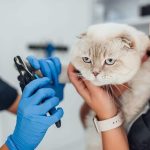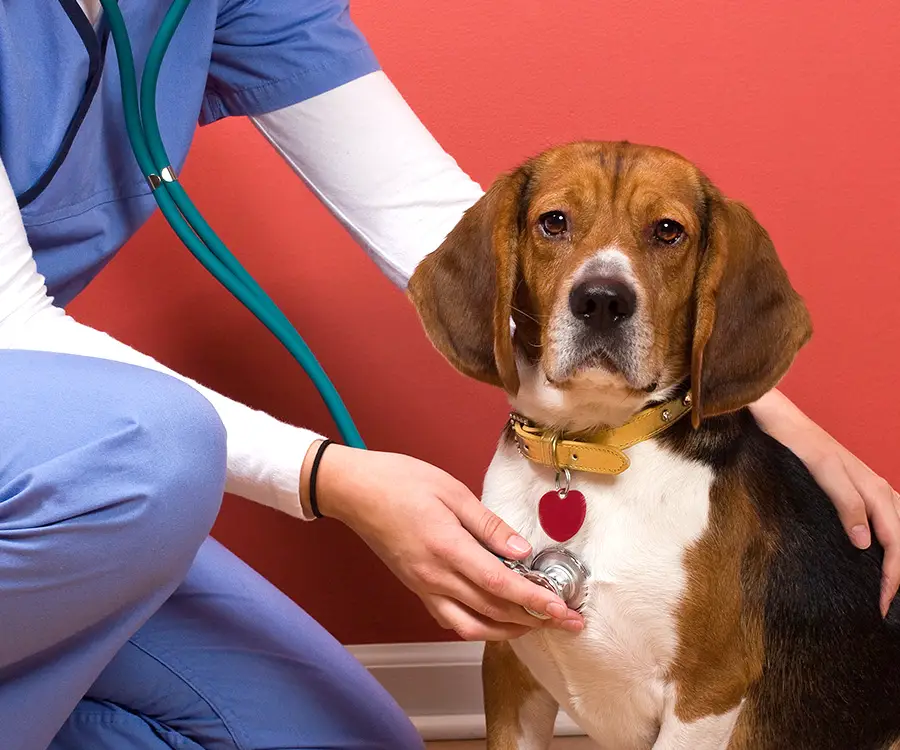For all students looking to enroll in the best veterinary schools in Pennsylvania, here is a detailed and informative guide on how to get into one.
First things first, Pennsylvania is a good location for college education and the state has lots of veterinary schools with up-to-date state-of-the-art facilities. Making a choice of which college is food for you is daunting and now you have too many options to choose from. That’s where we come on.
In this article, we have made a list of accredited schools and colleges in Pennsylvania with accredited vet programs. We have also written down insights about these schools and their unique details and why you should choose any of them as your possible school.
However, if the vet colleges in Pennsylvania do not suit your educational goal, click on the link Veterinary Schools to explore other locations with great vet schools.
How Many Veterinary Schools Are In Pennsylvania?
While there are many schools with veterinary programs in Pennsylvania, there are just 11 accredited vet schools in the state.
These schools have a foundation of good learning and practical knowledge transfer that will guide one to become a professional vet upon graduation.
Related Posts
- 10 Best Vet Schools in California
- 4 Best Vet Schools in British Columbia
- 10 Best Vet Schools in Texas To Get Into
- 13 Best Veterinary Schools In Florida | Detailed Guide
- 10 Best Veterinary Schools In Georgia | Detailed Guide
- 3 Best Veterinary Schools In Arkansas | Detailed Guide
How Much Does It Cost To Attend Any Of The Pennsylvania Vet Schools?
Tuition is not the same across schools at Penn. The choice of school, the program of study, and the level of academic studies will impact the cost of tuition.
For instance, the University of Pennsylvania which offers a D.V.M program has a tuition of $32,450 per year for in-state students and $41,460 per year for out-of-state students. This is not the same across other colleges. And also, other payments, books, supplies, and accommodation costs may also apply.
We recommend you visit the school’s website once you’ve made a choice of institution and find out what the cost of tuition is for your preferred study program.
Important Things To Consider Before Going to Vet Schools in Pennsylvania
Just before you enroll in a vet program at any school in Penn, there are key factors you must put into consideration. You need to consider the following points before making a choice;
- Accreditation
- Acceptance Rate
- Curriculum strength.
- Number of Programs.
- Location of school and safety
- Graduation & Employment Rate.
- Presence of professional teachers.
- Availability of hands-on practical training.
ALSO READ: 8 Best Football Colleges In Pennsylvania – Detailed Guide
What Are The Best Veterinary Schools in Pennsylvania?
Helping you find the perfect school for you is our plan here at Zikky. As such we have done our research and come up with the best veterinary colleges in Pennsylvania for students seeking to become a veterinarian.
Our choice of schools was made based on the overall quality of the school, the quality of the veterinary program they offer based on universal rankings, and the structure of the school to ensure the students gain hands-on training for practice upon graduation.
1. California University of Pennsylvania
- Veterinary Program Offered: Veterinary Technology
The California University of Pennsylvania is one of the best vet colleges in Pennsylvania. Currently, the school is offering a 60-credit Veterinary Technology program that prepares students to enter this exciting field as entry-level veterinary technicians.
Classes cut across laws of animal care, anatomy, disease, the behavior of animals, and best practices for managing, recording, and handling animals. Also, students learn the anatomy and physiology of pets, veterinary technology, and the care and maintenance of exotic and laboratory animals.
Students who graduate from this program can go on to enroll to obtain a bachelor’s degree in veterinary technology. Keep in mind that the California University of Pennsylvania Vet program is accredited by CVTEA.
2. Harcum College
- Veterinary Program Offered: Veterinary Technology
Harcum College is also offering a vet program in veterinary technology. The vet tech program at Harcum College is a 92-credit six semesters program preparing students to become veterinary technicians. Not just veterinary technicians but those who work in private veterinary practices, zoos or wildlife medicine, pharmaceutical sales, biomedical research, teaching, and livestock.
As part of the course, students must complete two 12-week internships to gain hands-on practical training: one at the University of Pennsylvania Veterinary Hospital and one at the New Bolton Center.
ALSO READ: 18 Best IT & Cybersecurity Schools in Pennsylvania
3. Institute of Medical and Business Careers
- Veterinary Program Offered: Veterinary Technology
The difference between the vet program at the Institute of Medical and Business Careers and others is the specialized curriculum. Students who enroll in the college enroll in the Associate of Veterinary Technician in the Specialized Technology Program (AST).
The duration of the program is for one and a half years: Day and Evening. Students take courses on parasitology; laboratory and clinical skills of veterinary technicians etc. Also, there is the hands-on experience where students work with animals at partner clinical centers such as the ANNA West Shelter.
Keep in mind that the Institute of Medical and Business Careers vet program is accredited by CVTEA.
4. Johnson College
- Veterinary Program Offered: Veterinary Technology
The veterinary program at Johnson College is a 74-credit program leading to a veterinary technology degree. As part of the program, students at Johnson College learn and gain practical skills at the Johnson College Animal Care Centre.
Course emphasis is on dental care, neutering and castration, and laboratory diagnostics for dogs and cats. Keep in mind that 94 percent of Johnson College vet program graduates pass the VTNE exam on their first attempt.
ALSO READ: 3 Best Veterinary Schools In Indiana | Detailed Guide
5. Lancaster County Career and Technology Center
- Veterinary Program Offered: Veterinary Technology
Lancaster County Career and Technology Center is one of the best veterinary colleges in Pennsylvania. The veterinary technology program at Lancaster lasts for 21 months and requires 74 credits.
Another good reason to opt for the Lancaster County Career and Technology Center vet program is the academic setting of classroom and laboratory experience. Classes cover care, proper washing, surgical procedures and feeding techniques, and general animal care.
It’s worthy of note that 63.19% of Lancaster County CTC candidates passed the VTNE on the first attempt.
6. Lehigh Carbon Community College
- Veterinary Program Offered: Veterinary Technology
Lehigh Carbon Community College offers a degree in Applied Science (AAS) in veterinary technology which requires 68 credits.
While the theory is necessary, the vet program at Lehigh Carbon Community College ensures students develop technical skills as well through several clinical experiments with live animals.
It’s also worth noting that 85 percent of Lehigh Carbon Community College graduates from 2018 to 2021 passed the National Examination of Veterinary Technician (VTNE).
ALSO READ: 8 Best Veterinary Schools In Massachusetts | Detailed Guide
7. Manor College
- Veterinary Program Offered: Veterinary Technology
One of the practical vet schools in Pennsylvania is Manor College. Classes at Manor College include practical laboratory sessions for surgery, large and small animals, radiology, etc
For graduation, students require completion of the 85-credit program by taking courses in hematology, animal medicines, veterinary radiology, pharmacology, anesthesiology and pain treatment, animal nutrition, dentistry of small animals, etc.
Only six to eight students get to learn in any clinical section which guarantees adequate individual training. On average, from 2018 to 2021, 90 percent of Manor College vet graduates passed the VTNE.
8. Pittsburgh Career Institute
- Veterinary Program Offered: Veterinary Technology
The Pittsburgh Career Institute offers an 88-credit degree in law in veterinary technology. Beyond classroom work, students go on internships in their laboratories, X-ray and surgical facilities, hospitals, and clinics.
Theory classes cut across hematology and urinalysis, internal parasitology, breeds / preventive medicine, specialized food, care for birds and exotics, veterinary surgical nursing, etc.
However, only 38 percent of Pittsburgh Career Institute graduates passed the VTNE exam between 2018 and 2021.
ALSO READ: 8 Best Veterinary Schools In Oregon | Detailed Guide
9. Vet Tech Institute
- Veterinary Program Offered: Veterinary Technology
Veterinary Technical Institute offers a place for veterinary technicians in Pennsylvania. Not only do students gain hands-on training but they also are prepared for the National Veterinary Technician Exam (VTNE).
Graduation will require completion of 63 credits in courses such as animal behavior, veterinarian, animal husbandry, and anesthesia. About 71 percent of graduates from Vet Tech Institute passed the VTNE exam.
10. Wilson College
- Veterinary Program Offered: Veterinary Technology
Wilson College is not just one of the best vet colleges in Pennsylvania, it is also the most affordable vet school in the state. The vet program at Wilson College is for four years which leads to a bachelor’s degree in Veterinary Technology.
Students focus on 3 things: Veterinary Biology, Veterinary Business Management, and Equi-Assist. Regardless of your focus, you will have to take classes in pharmacology, laboratory zoology, acquaintance with a veterinarian, infectious diseases and diagnostics, etc
67 percent of students at Wilson College passed the VTNE exam in 2018-2021.
11. YTI Career Institute
- Veterinary Program Offered: Veterinary Technology
YTI Career Institute vet program is a 20-month veterinary technology lawyer. The program is hybrid and covers classes in nutrition, anatomy, and physiology of animals, breeding, breeding, behavior, sanitation, care, euthanasia, and dissection of various animal species.
Students are ready to work as veterinary technicians in veterinary practices, research institutions, universities, zoos, and pharmaceutical companies upon graduation. About 62.58 percent passed the VTNE exam between 2018-2021 at YTI Career Institute.
ALSO READ: 3 Best Veterinary Schools In Maryland | Detailed Guide
Best Veterinary Schools in Pennsylvania FAQs
Do I need a college degree to become a vet in Pennsylvania?
As long as you have a passion for animals and caring for them. You can become veterinary personnel in Pennsylvania. Although you don’t need a bachelor’s degree, we recommend you have one for ease of finding a job and thriving in the business.
What do veterinarians do in Pennsylvania?
The work of a veterinarian will differ depending on your specialty and area of practice. Veterinary technicians typically work not only in veterinary clinics and hospitals, but also in zoos, nurseries, animal rescue centers, shelters, nonprofits, farms, laboratories, biomedical (or pharmaceutical) research facilities, and aquariums.
What’s the job outlook for veterinarians at Penn?
The growing demand for skilled veterinarians is increasing in Pennsylvania. Because of the educational barrier to entry, it is met with a growing number of aspiring college graduates seeking to make a lasting impact on the lives of others in and around Pennsylvania.
How much do veterinarians earn in Pennsylvania?
Veterinarians in Pennsylvania make an average of $29.00 per hour which leaves the annual salary of a veterinarian in Pennsylvania at $60,780, which is 59% higher than the state’s average income and 50% higher than the national average for all occupations.
What is the Penn Vet School GPA requirement?
The profile of class 2026 shows that the average GPA of the introductory class ranged from 2.91 to 4.0. Examining Penn’s veterinary acceptance rate, you can see that you can enter a veterinary school with a GPA of 3.2.
Conclusion
Having read through this detailed guide above, we believe you have all you need to know about veterinary colleges, schools, and the best institutions for vet programs in Pennsylvania.
Ensure that the school you choose is accredited by the American Veterinary Medical Association (AVMA). Once you have made a choice of institution we encourage you to visit the school website once to find out what the requirements are for your application to the school. Also, confirm with specificity the tuition costs for the program you’re enrolling into.















